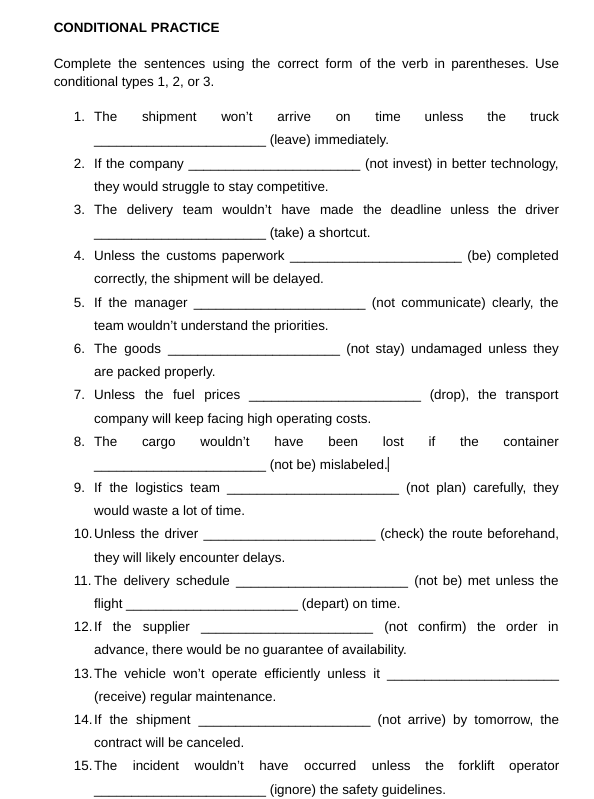Complete the sentences using the correct form of the verb in parentheses. Use conditional types 1, 2, or 3.

Understand the Problem
The question is asking to complete sentences using the correct form of verbs based on conditional types 1, 2, or 3.
Answer
["leave","doesn't invest","hadn't taken","isn't","doesn't communicate","won't stay","drop","hadn't been","doesn't plan","checks","won't be","doesn't confirm","won't operate","hasn't arrived","hadn't ignored"]
["leave","doesn't invest","hadn't taken","isn't","doesn't communicate","won't stay","drop","hadn't been","doesn't plan","checks","won't be","doesn't confirm","won't operate","hasn't arrived","hadn't ignored"]
Answer for screen readers
["leave","doesn't invest","hadn't taken","isn't","doesn't communicate","won't stay","drop","hadn't been","doesn't plan","checks","won't be","doesn't confirm","won't operate","hasn't arrived","hadn't ignored"]
More Information
The correct form of the verb depends on recognizing whether the condition is real (Type 1), hypothetical (Type 2), or contrary to past fact (Type 3).
Tips
Remember to check if the sentence refers to the present, future, or past to select the correct conditional type.
Sources
AI-generated content may contain errors. Please verify critical information